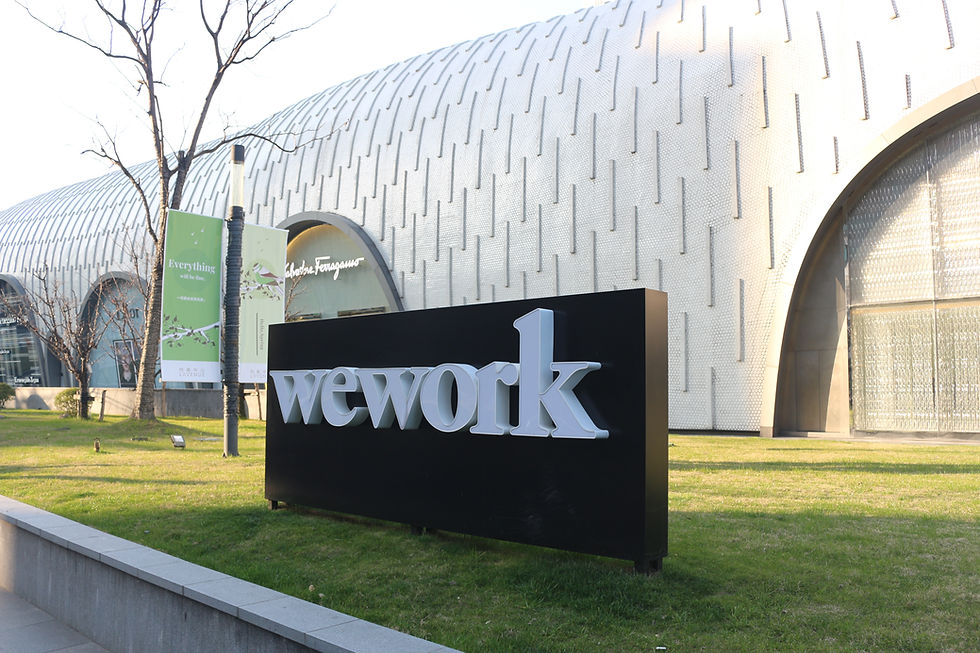WeWork's Imminent Bankruptcy Filing: An Analysis of What Went Wrong
- Mandy S.
- Nov 1, 2023
- 2 min read
Understanding the Downfall of a Once-Celebrated Start-up Giant

Founded with a dream to revolutionize the co-working space, WeWork was once a symbol of the start-up success story. From rapid expansion to a massive valuation, it appeared unstoppable. But like Icarus flying too close to the sun, WeWork's rapid ascent was met with a sudden and dramatic fall.
The company is now set to file for bankruptcy, a stark contrast from its days of rampant growth. How did this tech unicorn, once valued at $47 billion, come to this precipice?
1. Overvaluation and Overexpansion
WeWork’s valuation soared to dizzying heights, fueled by investments from major players like SoftBank. This valuation, however, was based on aggressive growth projections that the company struggled to meet. In its quest to dominate the co-working space, WeWork expanded rapidly, sometimes without clear plans for profitability.
"At its peak, WeWork was valued at a staggering $47 billion, a figure many experts claimed was inflated based on its revenue streams."
2. Business Model Concerns
Many analysts raised eyebrows at WeWork's long-term lease obligations paired with short-term rental agreements. While customers could leave at any time, WeWork was tied into lengthy, costly leases. This model, critics argued, was unsustainable and exposed the company to significant risks, especially in economic downturns.
"WeWork's mismatched lease model left it vulnerable, with long-term commitments on one side and short-term flexibility for clients on the other."
3. Leadership Controversies
Adam Neumann, WeWork’s charismatic co-founder and former CEO, came under scrutiny for his management style and decisions. Revelations about his controversial dealings, combined with reports of an erratic leadership approach, raised red flags for potential investors.

"Despite his visionary approach, Neumann's management raised concerns, with allegations of conflicts of interest and erratic decision-making marring the company's image."
The Road Ahead
While the bankruptcy news marks a significant setback, it doesn’t spell the end for WeWork. The filing can offer a chance for restructuring and a new direction. For the co-working industry, it serves as a cautionary tale on the importance of sustainable growth and sound business practices.
.png)













Comments